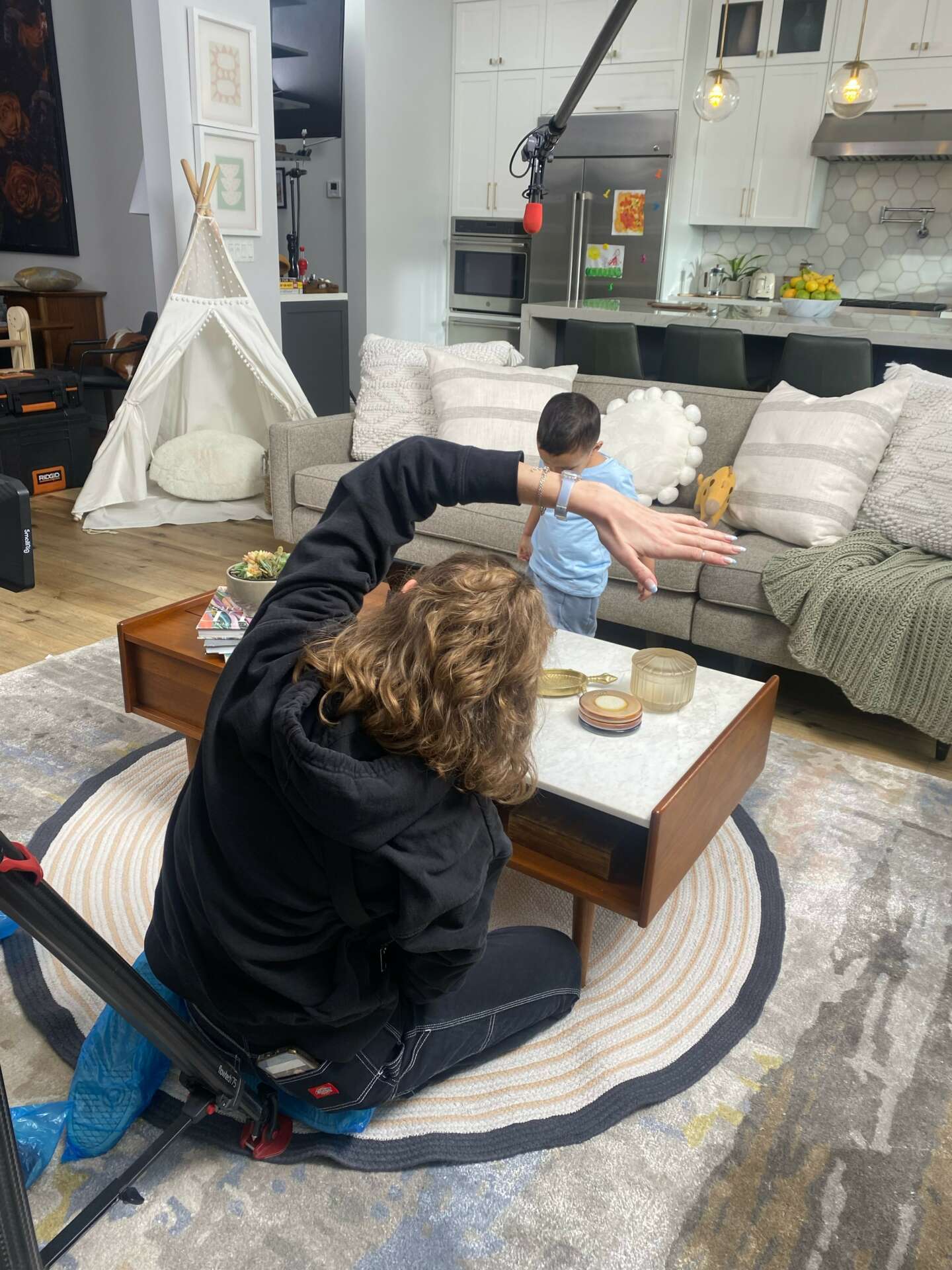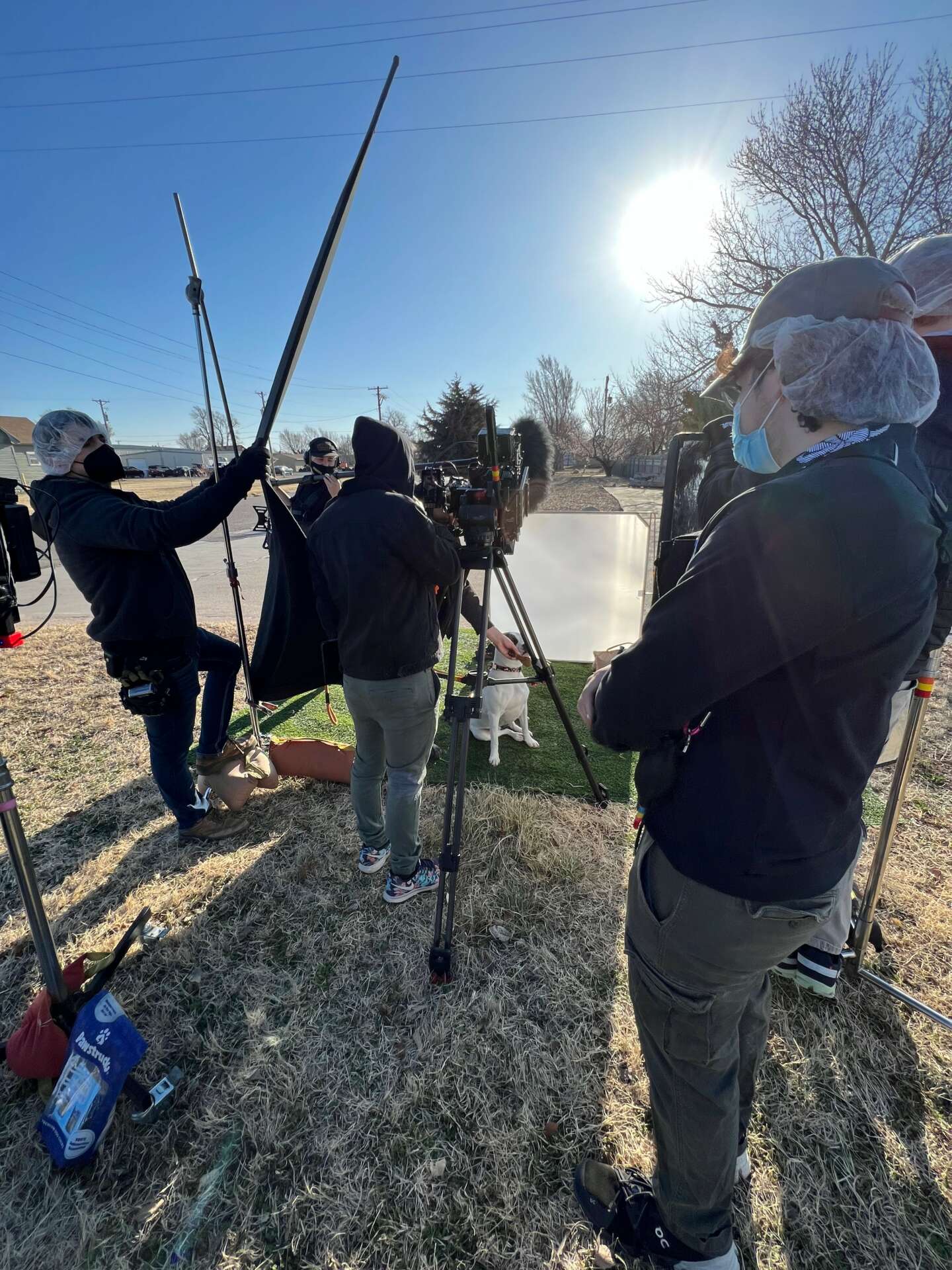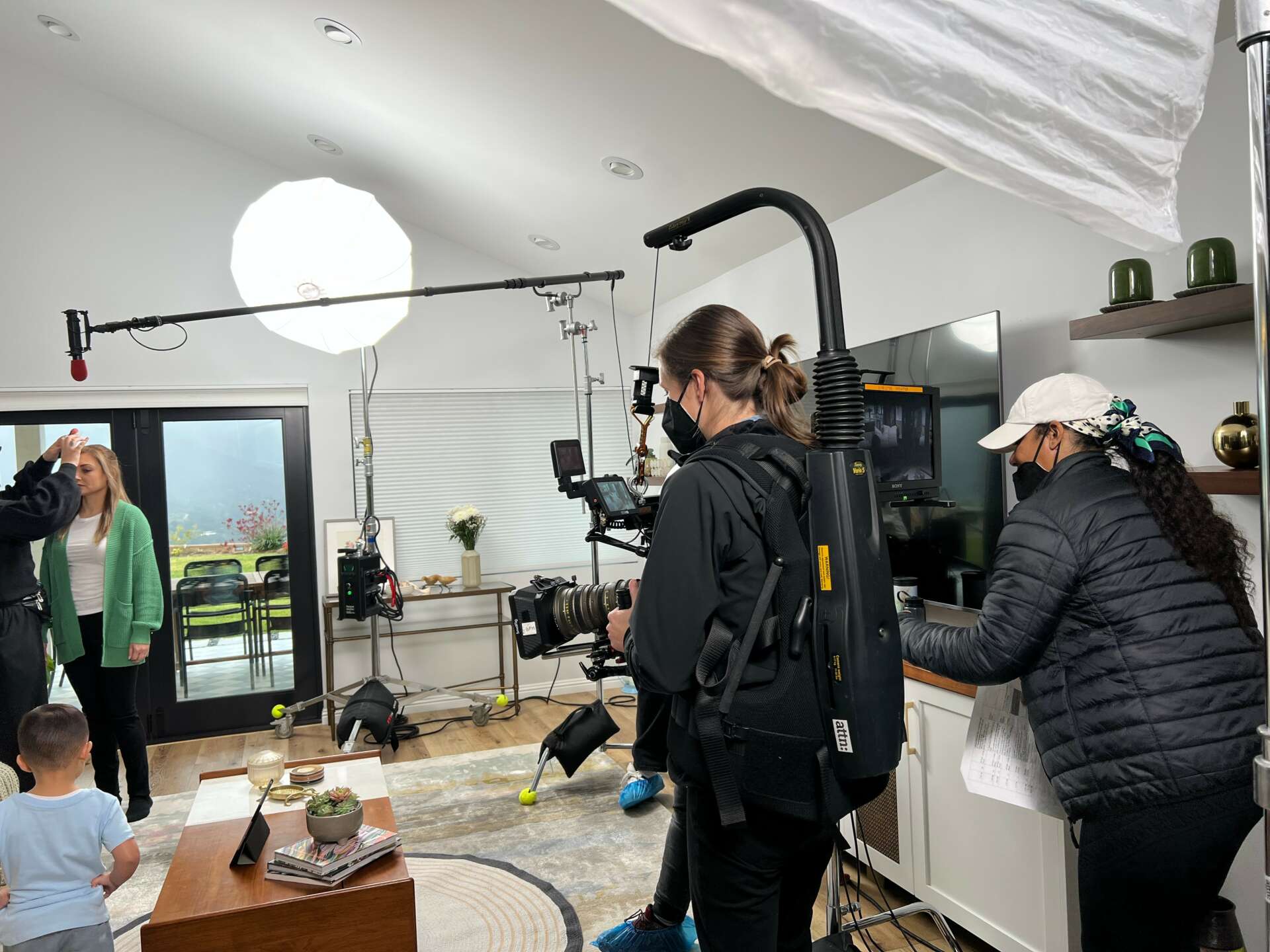We were lucky to catch up with Victoria Pierce recently and have shared our conversation below.
Hi Victoria, thanks for joining us today. One of the toughest things about progressing in a creative career or as an entrepreneur is that there are almost always unexpected problems that come up – problems that you often can’t read about in advance, can’t prepare for, etc. Have you had such and experience and if so, can you tell us the story of one of those unexpected problems you’ve encountered?
As a producer, unexpected issues and problems arise all the time. I’d say that half of the job is pulling from past experiences where similar issues may have occurred, and the other half is encountering new problems and learning how to solve those. When I try to explain my job to people, I often tell them it’s like being a parent, but on a film set. Producers are in charge of everyone’s safety (hiring the right people and right crew members to ensure everyone will be safe, making sure the location is safe), you also hire all of your crew members and make sure you have a good team to carry the project, you pay and feed everyone, and more importantly: you have to manage everyone and ensure everyone is getting along at all times. With all of these moving pieces in mind, no wonder problems and issues arise quite fast!
Here are a few examples of problems that arose and how they were solved:
– We once had a shoot in a location that was quite far and very dusty. We were in a ranch with horses and other animals. We spent all day filming in hard conditions: it was hot and dry. The next day, as we are shooting in studio, turns out our card for the whole day was wiped. To this day, we aren’t sure how this happened. One of our crew members might’ve reformatted the card without giving it to our DIT etc.. Regardless, we needed that footage because we had episodes to edit that weekend. I spent the next 5 hours calling the location, actors, and vendors to see if everyone was okay going back to shoot tomorrow so that we could have all of the footage we needed. Since I was underbudget, I was able to pull some funds together and ensure this wouldn’t cost us too much. We were able to reshoot most of the scenes and make the episode work!
– During Covid, a client came to us with a new idea for a campaign where we would be filming real people across the USA. The timeline was incredibly tight, and with Covid concerns, traveling people to 5 different locations in such a short amount of time was against Covid protocols and very risky. I came up with a plan that meshed remote filming with local crew members together to make this all work, and the campaign came out fantastic!
– Last example, and this is quite a common one, on set, I found out that the director hated the wardrobe stylist we hired. This was causing havoc because it’s never good to have toxicity on set, but the director would also refuse to communicate directly with this crew member. I created a communication system that mostly went through myself, and one of the people from my team so that we could keep an eye on the situation, and ensure that we were moving forward with wardrobe with all of our talent so that we could finish our shoot day without any toxicity! It wasn’t an easy day, but it happened and the project turned out wonderful!

Victoria, love having you share your insights with us. Before we ask you more questions, maybe you can take a moment to introduce yourself to our readers who might have missed our earlier conversations?
My name is Victoria, and I am a French-American TCK. I was brought up in a bilingual setting, and have always had a bicultural identity. Living and growing up around the world has taught me a lot about other cultures, different ways of thinking, and empathy. Growing up, I always had an interest in Film. I was an avid watcher of film and series, but I also loved filming videos with friends, editing for hours, and I also entered a few contests when I was younger. Naturally, once it was time for me to go to college, I picked a film school in France. This is where I quickly learned that my organizational skills, my knack for schedules and passion for budgeting would bring me on the producer track.
Once I finished film school, I moved to LA from Paris and worked my way up the ranks: I started as a production assistant, went through production coordinating and assistant directing, and eventually became a producer (or line producer).
I currently produce for all types of content: commercials, music videos, branded content, documentaries, series etc… I truly enjoy being on set and working with wonderful crew members as a team. Sometimes, I am brought on as a consultant in a few production companies to help with different areas: re-organizing the way they prep for projects (wether that re-organizing their folders, onboarding new vendors that match their business model better, and making sure they keep California laws in mind, as well as union rules). I do a lot of bidding (budgeting) for production companies, writers, or producers (projects vary, sometimes it’s bidding a small branded project, sometimes it’s bidding an indie film).
I absolutely love what I do! I thrive in fast-pace environments where you need to creatively problem-solve everyday, and truly love seeing a project from its inception all the way to the release date.
Something that’s very important to me in the film industry is pushing for more diverse crew members. The film industry has been a notoriously white male driven industry, but it’s been slowly opening up and making space! Having more diversity on a team forms a more creative and comfortable work environment, and who wouldn’t want a better workplace and better projects?

Learning and unlearning are both critical parts of growth – can you share a story of a time when you had to unlearn a lesson?
A few years into my professional journey, I felt like I had learned a lot (which I did) but that often led to me saying “no, this isn’t possible for xyz reason”. At the time, I thought I was being honest & transparent, which is something that’s very important to me. In reality, I learned that it just turned people off from working with us. I had to unlearn this way of thinking and “no” turned into “here is how we can achieve with the resources that we have”. You can still bring honesty and transparency to the table, but it’s also super important to be solutions oriented and bring different creative ideas that will absolutely make the project work (on time, and on budget!). It was just about reframing how you see things. This came more and more naturally after more experience to as you often come across similar issues and can propose similar solutions. It’s also very important to think outside the box, and to learn from people around you. Who knows, they might’ve gone through something similar in the past and can give you advice. This is why working with other people is so important!

How do you keep your team’s morale high?
I love working with a team! When I first met people that were on my team, or that I was going to be working closely with, the first thing I said was “I am an over-communicator”. Communication is so important when managing a team and keeping morale! There are many miscommunications and unsaids that can quickly sour relationships, but not if we talk about it first. For that reason, I’ve always tried to create a space where people would feel comfortable talking to me. When I work closely with a team, I like to have team meetings 1-3 times a week (depending on how busy we are and how much we need to talk about), and I like having 1 on 1s at least once a week. That way, we can discuss anything that’s been going on, how the person feels, and just talk about fun things if it’s been an easy week! At the end of a project, I also really like to take the team out for lunch as a thank you. It’s nice to get out of a work environment for a second and recognize hard work! All in all, my advice is to operate with empathy & clear communication. We are all human and we see and feel things differently. If you ever feel like something’s off, talk about it! 90% of the time, it’s just a misunderstanding that can be easily fixed. And ALWAYS ALWAYS recognize your team’s hard work, one on one AND in front of the whole company as well. Everyone deserves credit for the hard work they put in. Lastly, don’t forget that most managers have a say in someone’s salary. So pushing and asking for a better salary for your teammembers will go a really long way!
Contact Info:
- Website: https://www.victoria-pierce.com/
- Instagram: https://www.instagram.com/weekeepee/
- Linkedin: https://www.linkedin.com/in/victoriagabriellepierce/
Image Credits
I took most of these photos. The one of me sitting is taken by a friend, Faith.


